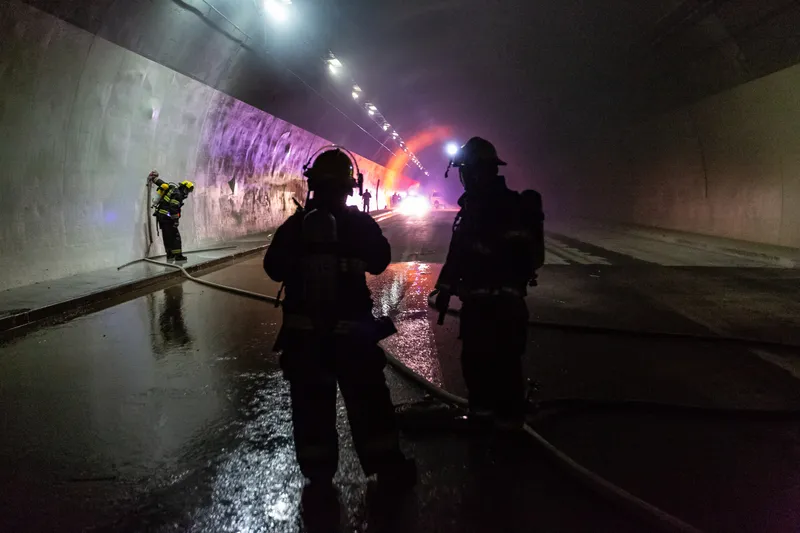The long-awaited Presidio Parkway in San Francisco has opened to traffic. The US$1.1 billion project relied on US$363 million in federal funds, as well as US$152.5 million from the American Recovery and Reinvestment Act, and a US$150 million Transportation Infrastructure Finance and Innovation Act (TIFIA) loan.
Since work began in 2009, the Presidio Parkway project replaced Doyle Drive, a 1.6-mile segment of SR-101 linking the city to the Golden Gate Bridge, connecting Marin and San Francisco counties, a
July 14, 2015
Read time: 2 mins
The long-awaited Presidio Parkway in San Francisco has opened to traffic. The US$1.1 billion project relied on US$363 million in federal funds, as well as US$152.5 million from the American Recovery and Reinvestment Act, and a US$150 million Transportation Infrastructure Finance and Innovation Act (TIFIA) loan.
Since work began in 2009, the Presidio Parkway project replaced Doyle Drive, a 1.6-mile segment of SR-101 linking the city to the Golden Gate Bridge, connecting Marin and San Francisco counties, and providing a major regional traffic link between the peninsula and North Bay Area counties.
The project area extends from the Golden Gate Bridge Toll Plaza on the west to Broderick Street on the east and includes local roads within the Presidio Trust. The Presidio Parkway is now a six-lane route with a southbound auxiliary lane between the Park Presidio Interchange connected to Highway 1 and the new Presidio access at Girard Road.
“In addition to solving a decades-old seismic protection problem for a critical Bay Area commuter route, this project represents the sort of large-scale infrastructure improvement America needs,” said U.S. Transportation Secretary Anthony Foxx. “We’re counting on Congress to pass the President's Grow America Act, so more projects like this can begin.”
“Safety is our top priority, and the completion of this project should bring peace of mind to all Bay Area drivers,” said Acting Federal Highway Administrator Gregory Nadeau. "Every city in the nation is counting on Congress to do the right thing and ensure there is long-term highway funding available to help them too.”
Since work began in 2009, the Presidio Parkway project replaced Doyle Drive, a 1.6-mile segment of SR-101 linking the city to the Golden Gate Bridge, connecting Marin and San Francisco counties, and providing a major regional traffic link between the peninsula and North Bay Area counties.
The project area extends from the Golden Gate Bridge Toll Plaza on the west to Broderick Street on the east and includes local roads within the Presidio Trust. The Presidio Parkway is now a six-lane route with a southbound auxiliary lane between the Park Presidio Interchange connected to Highway 1 and the new Presidio access at Girard Road.
“In addition to solving a decades-old seismic protection problem for a critical Bay Area commuter route, this project represents the sort of large-scale infrastructure improvement America needs,” said U.S. Transportation Secretary Anthony Foxx. “We’re counting on Congress to pass the President's Grow America Act, so more projects like this can begin.”
“Safety is our top priority, and the completion of this project should bring peace of mind to all Bay Area drivers,” said Acting Federal Highway Administrator Gregory Nadeau. "Every city in the nation is counting on Congress to do the right thing and ensure there is long-term highway funding available to help them too.”








